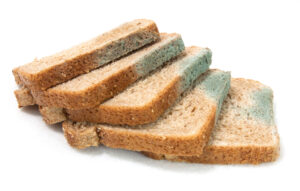Depending on your stance, importing food into the U.S. has just gotten simpler … or more complex. That is, FDA’s January launch of FSMA’s Voluntary Qualified Importer Program (VQIP) means your imported foods can get into the U.S. more quickly and easily. But you first must complete the VQIP application process, pay the user fee, and ensure your foreign supplier facilities are certified under the Accredited Third-Party Certification Program – for which FDA has just recognized the first accreditation body. What does this mean to you? As a voluntary, fee-based program, VQIP enables expedited review and entry of food into the U.S. But, prior to January, FDA had not recognized any accreditation bodies that could provide the VQIP-required certification. The agency has now recognized ANSI-ASQ National Accreditation Board (ANAB) with a five-year term of recognition. The organization jointly owned by the American National Standards Institute (ANSI) and the American Society for Quality (ASQ). This means that auditors that are accredited by ANAB can now conduct food safety audits and issue the Foreign Supplier Certifications that are required for VQIP. What benefits does VQIP provide for you?
To expedite import entry for VQIP participants, FDA will use its Predictive Risk-based Evaluation for Dynamic Import Compliance Targeting (PREDICT) screening tool. The tool will recognize shipments of food that are part of an approved VQIP application and, in most cases, immediately release it. But, if examination and sampling are deemed necessary, VQIP participation will enable: Limited examination and sampling in “for cause” situations (i.e., investigation of an outbreak or illness); to obtain statistically necessary risk-based microbiological samples (when building a product risk profile based on non-biased surveillance sampling); and/or to audit a small percentage of VQIP import shipments for verification. FDA sampling at a preferred location. When FDA needs to examine a VQIP entry, it will attempt, to the extent possible, to do so at a location preferred by the VQIP importer. If import entry to the U.S. is denied, FDA will assist in attaining export of the refused products from an importer-preferred port. Faster lab results. FDA’s laboratories will prioritize processing of VQIP samples. Are You Eligible? To be eligible for VQIP, you must: Have a 3-year history of importing food into the U.S. Have a DUNS number. Use paperless filers/brokers who received an acceptable rating during their last FDA Filer Evaluation. Have no foods you import (including those not in the VQIP application) that are subject to an import alert or Class 1 recall at the time the application is submitted. Not be (or have a non-applicant entity associated with a VQIP food) subject to an ongoing FDA administrative or judicial action or have a history of significant food safety non-compliances without documentation of appropriate corrective actions. Be in compliance with the supplier verification and other importer responsibilities and regulations if you are the FSVP or HACCP importer for a VQIP food. Or – if you are not the FSVP or HACCP importer for a VQIP food – you must identify the FSVP or HACCP importer and ensure they are in compliance with the applicable regulations. Have a current facility certification for each foreign supplier of a VQIP food. Develop and implement a VQIP Quality Assurance Program (QAP) and submit QAP documentation with your application. Have not been the subject of any U.S. Customs and Border Protection penalties, forfeitures, or sanctions within the past 3 years related to the safety and security of any FDA-regulated product that you imported or offered for import. Pay the user fee before October 1, the start of VQIP fiscal year, each year that you are approved to participate in the VQIP. (For further detail on eligibility requirements, see FDA’s VQIP Guidance, Section C. Eligibility.) Time will tell if VQIP is leveraged by the food industry. I believe that it is a marketable commodity for importers of food to demonstrate to customers in the US that they have gone above and beyond. Time will tell if it runs as smoothly as it is supposed to, and if the value is worth the cost and the effort. Some have said the frequency of inspection is currently so low that the gain in incremental and not worth the effort. But, I see the value of VQIP increasing over time and I hope it is seen as foreign suppliers putting in best industry practice programs and are thus rewarded by US companies seeing as such. But like all programs it will fall apart if the certification process and auditors are not at high standards. It will be an interesting space to watch over time. About The Acheson Group (TAG) Led by Former FDA Associate Commissioner for Foods Dr. David Acheson, TAG is a food safety consulting group that provides guidance and expertise worldwide for companies throughout the food supply chain. With in-depth industry knowledge combined with real-world experience, TAG’s team of food safety experts help companies more effectively mitigate risk, improve operational efficiencies, and ensure regulatory and standards compliance. www.AchesonGroup.com





